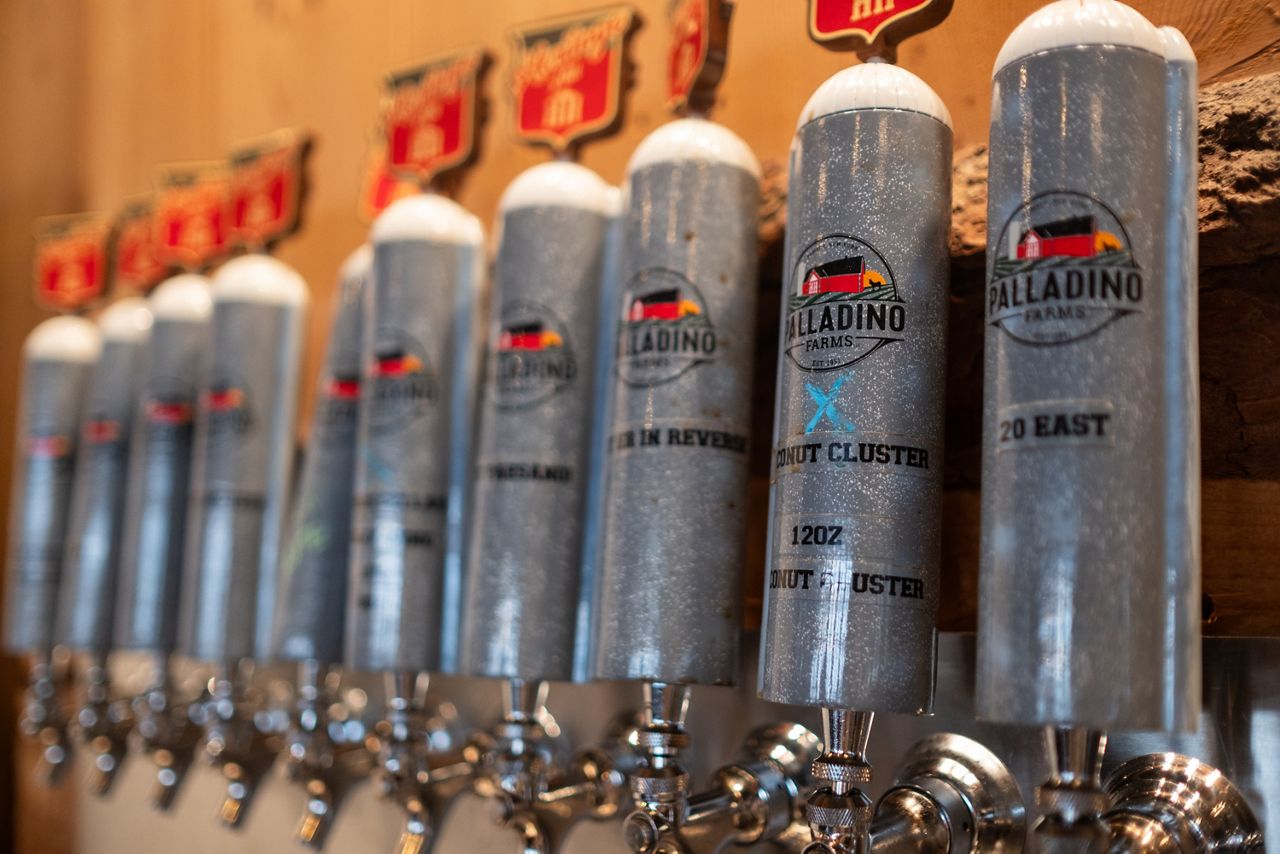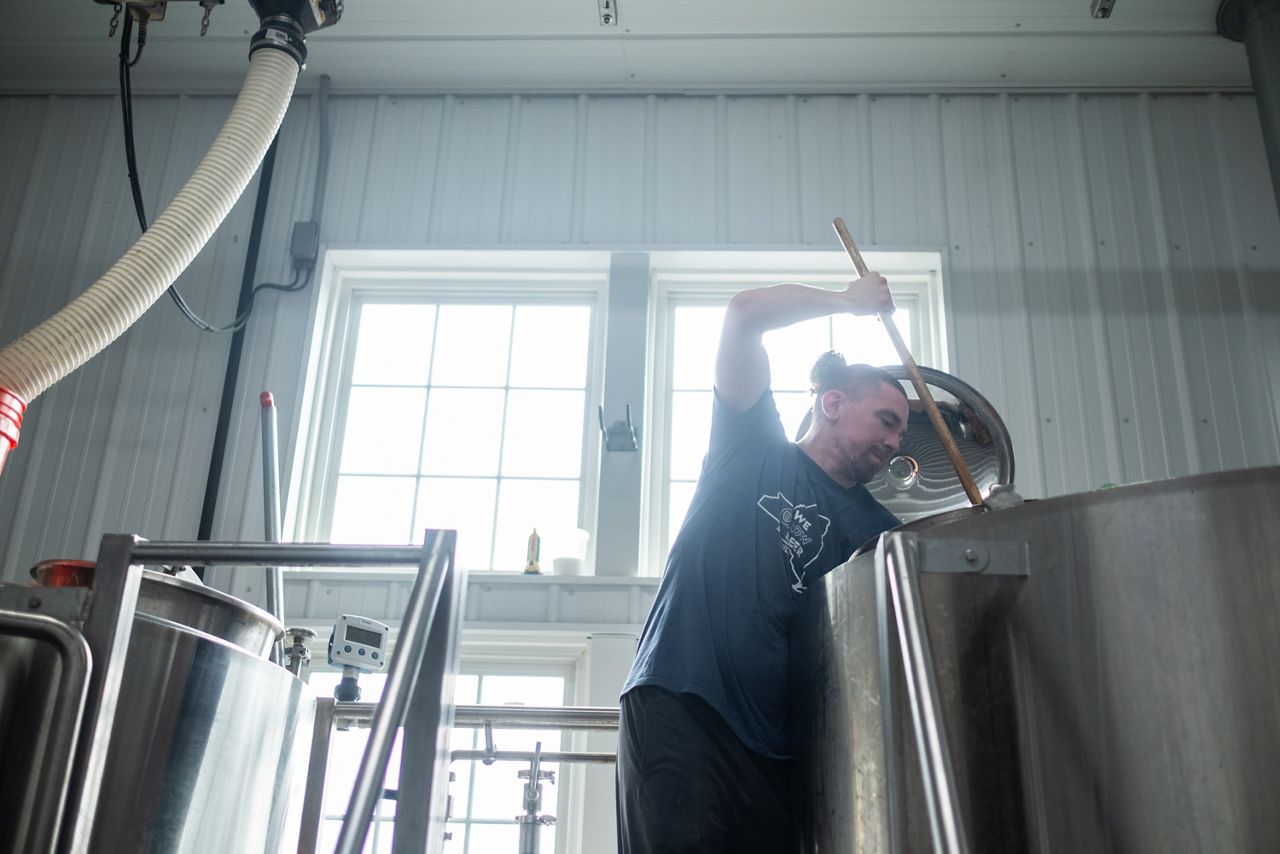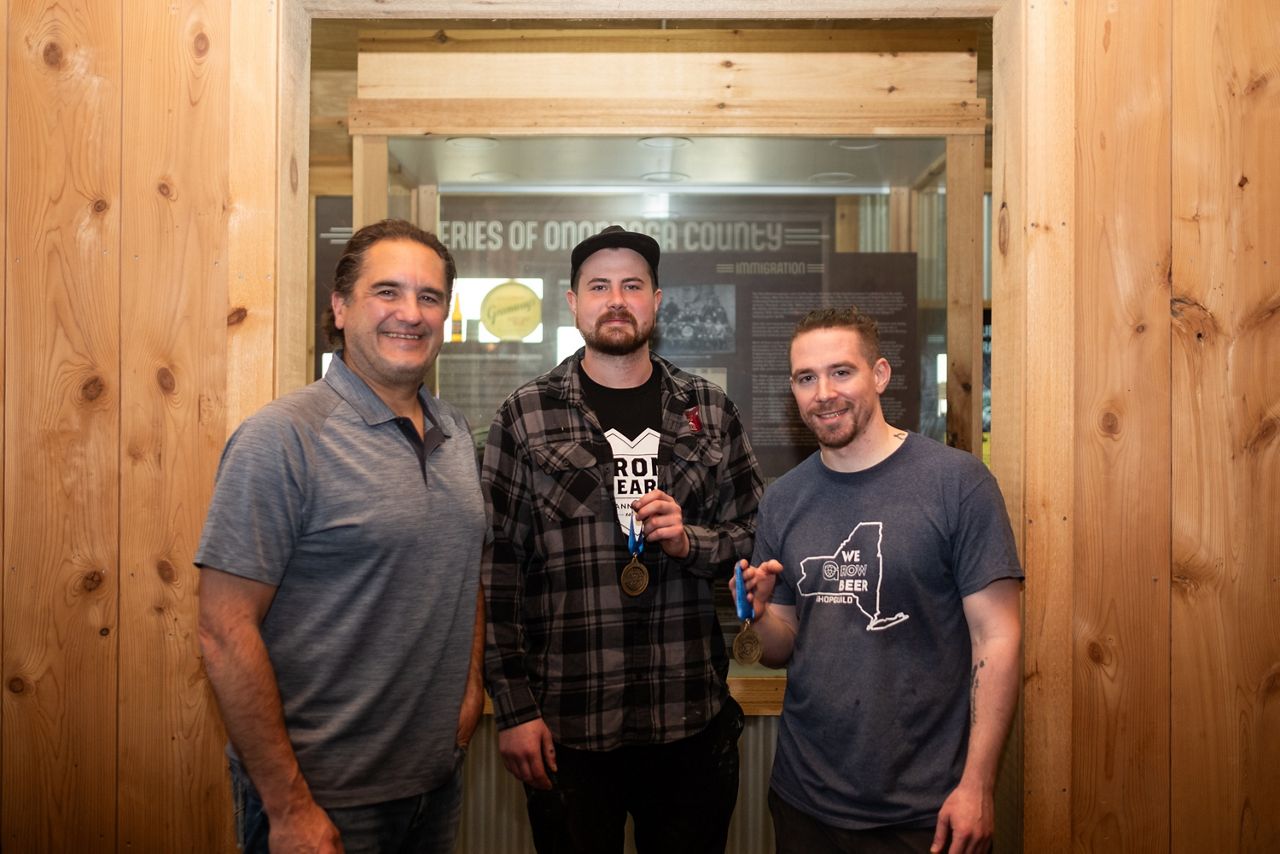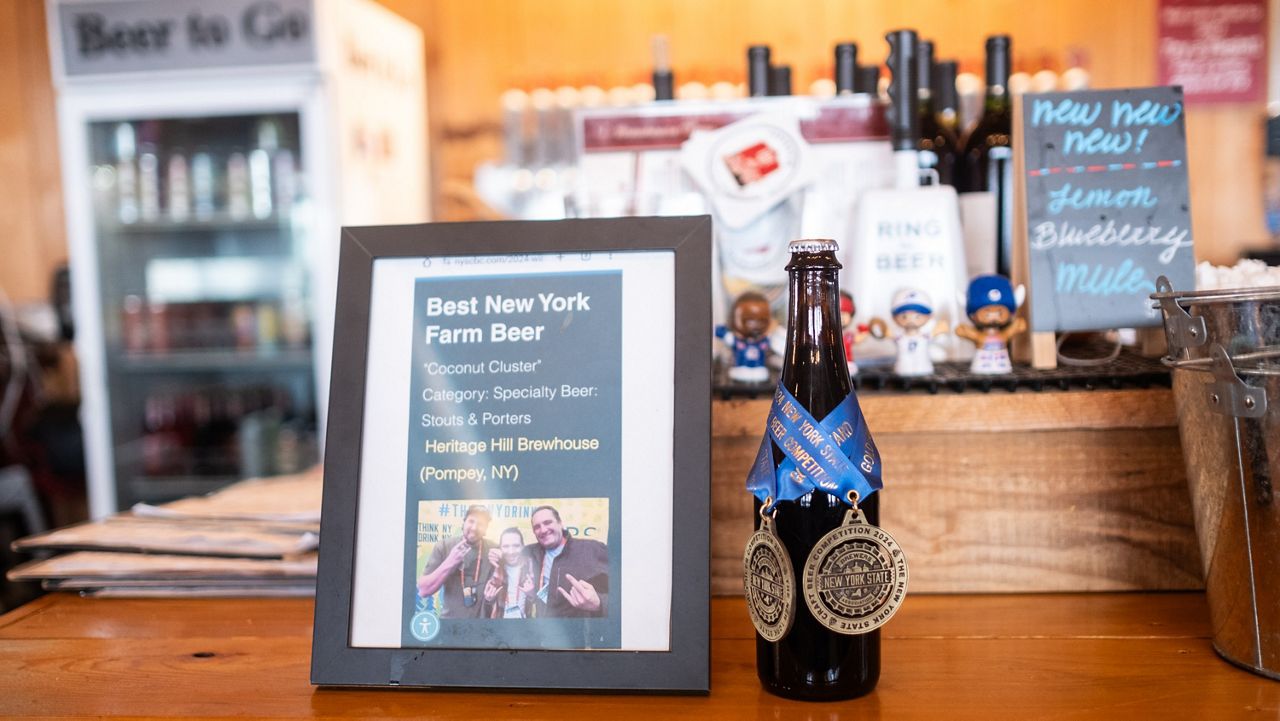If at first you don’t succeed...
It took some tweaking, but Heritage Hill’s coconut cluster stout – a distant finisher in 2023 – took home the 2024 best New York farm beer in the New York State Craft Beer competition.
“Essentially the idea behind it was to create a familiar flavor so it comes from the idea of eating a candy bar when you are a kid,” said head brewer Billie Smith.
Smith said they use clean ingredients which improves the flavor of the beer.

“We use vanilla beans that we process in house, our coconut we process in house. There are several pounds of coconut cream in it versus using artificial extract,” Smith said.
Last year, some of the comments on the beer said there was too much coconut flavor, so they scaled it back for the stout this year.
Additionally, the water they source to make the beer comes from the spring on Dan Palladino’s farm, the owner of Heritage Hill. It is run through a reverse osmosis system making it purified spring water.
The New York farm brewery law, established in 2013, requires brewers to use 60% of hops and 60% of other ingredients that are grown in state for beers labeled as New York beers. In 2029, that number will grow to 90% of hops and other ingredients.

Palladino said the law comes with additional benefits for the breweries.
“You get some advantages like satellite license, we just opened in North Syracuse, as well as some favorable tax and license costs, lower costs. You are allowed to have a full New York state bar where you can serve cocktails, wine and ciders as long as they’re from New York,” he said.
The law is meant to encourage the use of New York-grown ingredients and provide incentives to farmers. However, there have been some challenges.

“During COVID, we lost New York state’s biggest malt house in Fulton, 1886. That hurt because they were supplying us a large amount of what we were using, and unfortunately, a couple hop yards have also closed up,” Palladino said.
Heritage Hill established relationships with other New York growers and credits Cornell University’s hops breeding program for their genetic research.
The state has invested $300,000 into the program, and Palladino said this is key.
“Continuing to invest in the barley research, hop research and invest in growers to stay in business doing these things are going to be critical to us being able to create good New York state beer,” he said.



